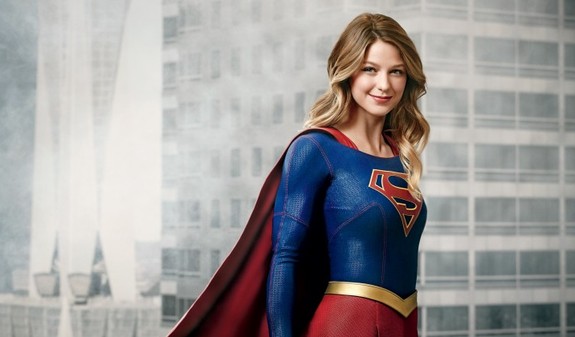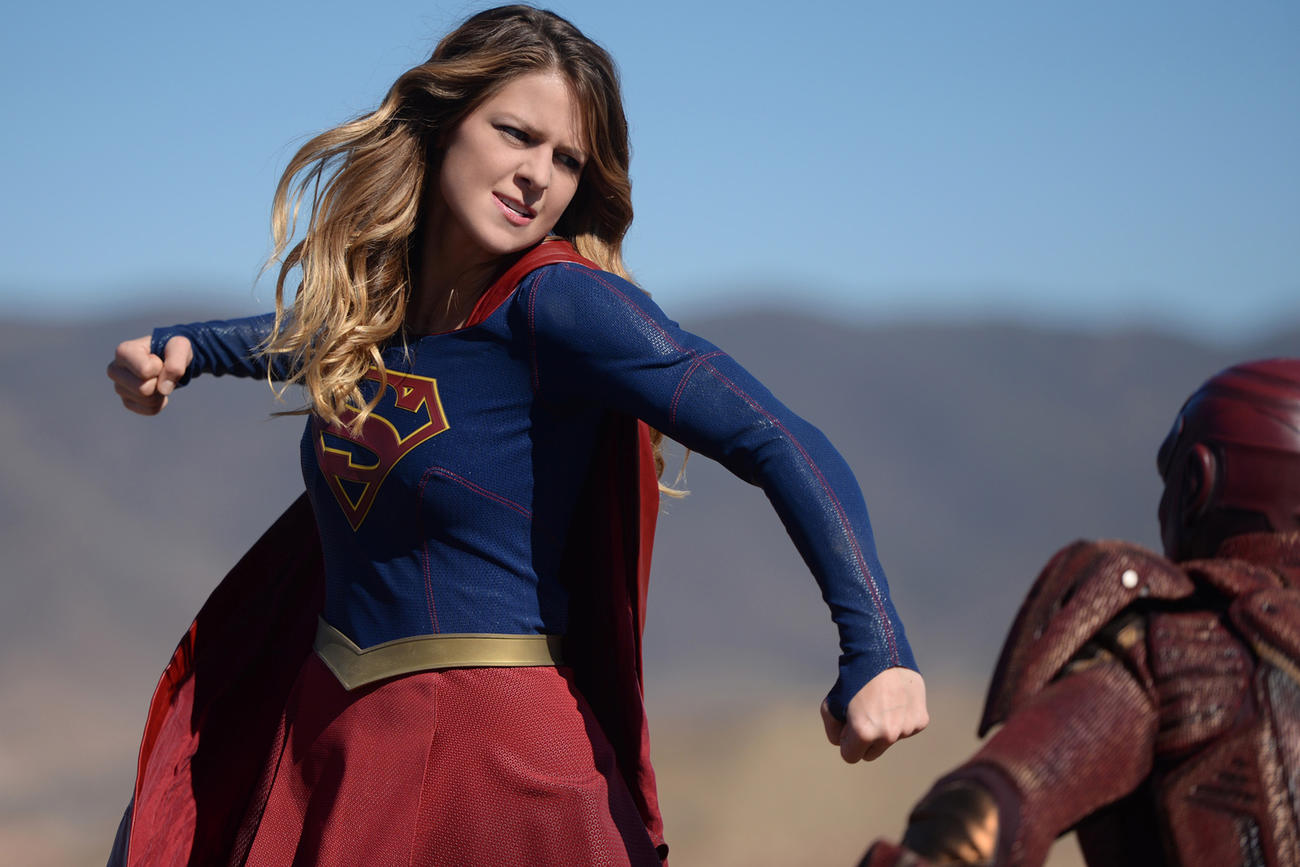The Refreshing Outlook of ‘Supergirl’
As a ‘non-traditional’ superhero series, ‘Supergirl’ has succeeded. Just not in the traditional, non-traditional way.
By Natasha Ali, University of Michigan
Let’s be honest: CBS’ Supergirl—a show centered on the life of Superman’s older cousin Supergirl—is no Arrow.
This despite its being created by the same team that created The CW’s infamous “Arrow-verse” (a.k.a. the trifecta of hit DC comics-based TV shows Arrow, The Flash and Legends of Tomorrow). Supergirl is no Daredevil, either. And it’s no Jessica Jones. But—and this is a pretty big “but”—the title of the show gives that much away.
No, Supergirl isn’t Arrow, Daredevil or Jessica Jones. Supergirl is Supergirl.
Unlike a lot of other well-known superheroes, the “Super” family—which is spearheaded by Supergirl and Superman, but also includes Power Girl, Superboy, Superwoman and an entire menagerie of super-powered pets—has always been all about spreading messages of hope, joy and love.
And so it’s totally OK that Supergirl’s Kara Danvers—or, rather, Kara Zor-El—is an absolute ball of sunshine. It’s totally OK that she gets jazzed about ice cream and pot stickers, OK that she can be found helping the people of National City put their IKEA purchases together as often as she can be found flying them out of burning buildings, and OK that she meets and immediately befriends a dimension-hopping Flash instead of registering him as potential competition or as a potential threat.
(Superman manages to barge his way past Batman’s walls, armed with nothing but an unrelenting sense of optimism. There is nothing that these “Supers” can’t do!)
It’s what makes the “Super” family so different, and so endearing. You have these God-like beings equipped with the power to level entire cities with their eyes in seconds, but instead of being power-hungry megalomaniacs, they spend the bulk of their time flying mewling kittens out of trees and helping gawky middle schoolers stand up to bullies.
It’s awesome. It’s also kind of refreshing.
I mean, I think it’s great that National City is always awash with natural sunlight, that it isn’t shrouded in layers of crime, grime and shadows like Batman’s Gotham. The people of National City are still happy. Still hopeful.
I know that a lot of critics hated the fact that the show’s finale saw its eponymous heroine break through to the (severely) brainwashed masses of her city with nothing more than an earnest speech about hope, but I genuinely loved that that was what happened.
Don’t get me wrong, I liked that she and J’onn J’onzz, a.k.a. the Martian Manhunter, went after the villains—the brainwashers, as it were—in a later part of the episode, but I also loved that Kara gave the brainwashed civilians the boost they needed to break themselves out of the mental prisons the Kryptonians had forced their minds into. It was a really empowering scene, for one, and it also sent out a great message to real-world viewers—especially kids—about the importance of being your own hero!
That is not to say that the show is all puppies and rainbows all the time though, because it isn’t. There are nastier thoughts crawling about even the most virtuous characters’ minds. We have seen characters like Alex Danvers and Lucy Lane and, yes, even Kara herself display feelings of extreme bitterness and jealousy.
But what is so important—and what is perhaps so revolutionary—about the show is that none of the characters are ever bogged down by their emotions. They don’t take the easy way out. They don’t become cruel or petty. Instead, they file the pain away and they move on, because they have more important things to do. And. That. Is. So. Freaking. Cool.
The character development we get to witness as the season progresses is easily one of the best things about the show. Many of the characters seemed to start off its first season as somewhat familiar “stock” characters, from Winn Schott as the best friend pining away for Kara in secret, to Cat Grant as the haughty, unfriendly boss, to Lucy Lane as the incredibly attractive romantic rival, but unlike a lot of other shows, Supergirl did its best to ensure that its characters weren’t—aren’t—tired stereotypes.
Kara doesn’t return Winn’s feelings, for example, and she is never made to feel guilty about that.
Winn is the one who is forced to work through his feelings for her in order to salvage their friendship. Cat is also revealed to be so much more than her catty (ha!) façade or persona: She’s brave and she’s driven and she’s shown to be actively rooting for James, Kara and Lucy time and again.
Similarly, Lucy could have easily become the nasty ex-girlfriend, but instead she and Kara become friends. Everyone has depths, even secondary characters you ordinarily wouldn’t expect to see any depths from. And that’s so exciting. And that, in turn, is but one of the many reasons why you should be rooting for this upbeat, zany show.
Another reason, of course, is the sheer newness of the relationships drawn between the characters themselves.
Sure, you have your standard romantic plotlines, like James and Kara’s adorable flirtation-ship, but you also have so many other interesting dynamics to look forward to seeing on screen each week. One such dynamic is Kara and Lucy’s aforementioned friendship, which sees the two characters—who could have so easily become bitter rivals—become stalwart allies.
Another is Cat and Kara’s, which sees Cat mentor Kara with a resoluteness that is rooted in admiration and respect. And then, of course, there is Alex, J’onn and Kara’s delightful makeshift interplanetary family. If you are at all enthused by the idea of found families, you should totally give Supergirl a watch because the show truly gives its audience one for the ages.
In conclusion: With its bevy of dynamic characters, its compelling and carefully constructed familial, platonic and romantic relationships and its fundamentally “fun” atmosphere, Supergirl does not warrant critics disparaging it for its “fluffiness”—it warrants praise (and a second season. Please get on that ASAP, CBS)!
















